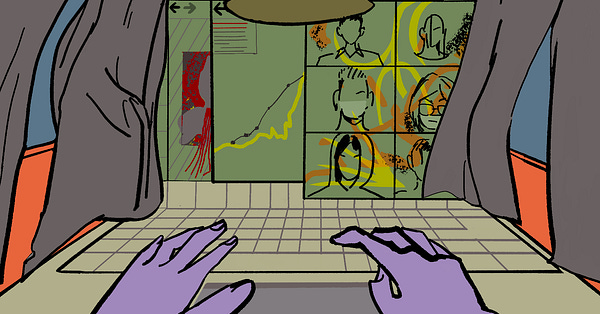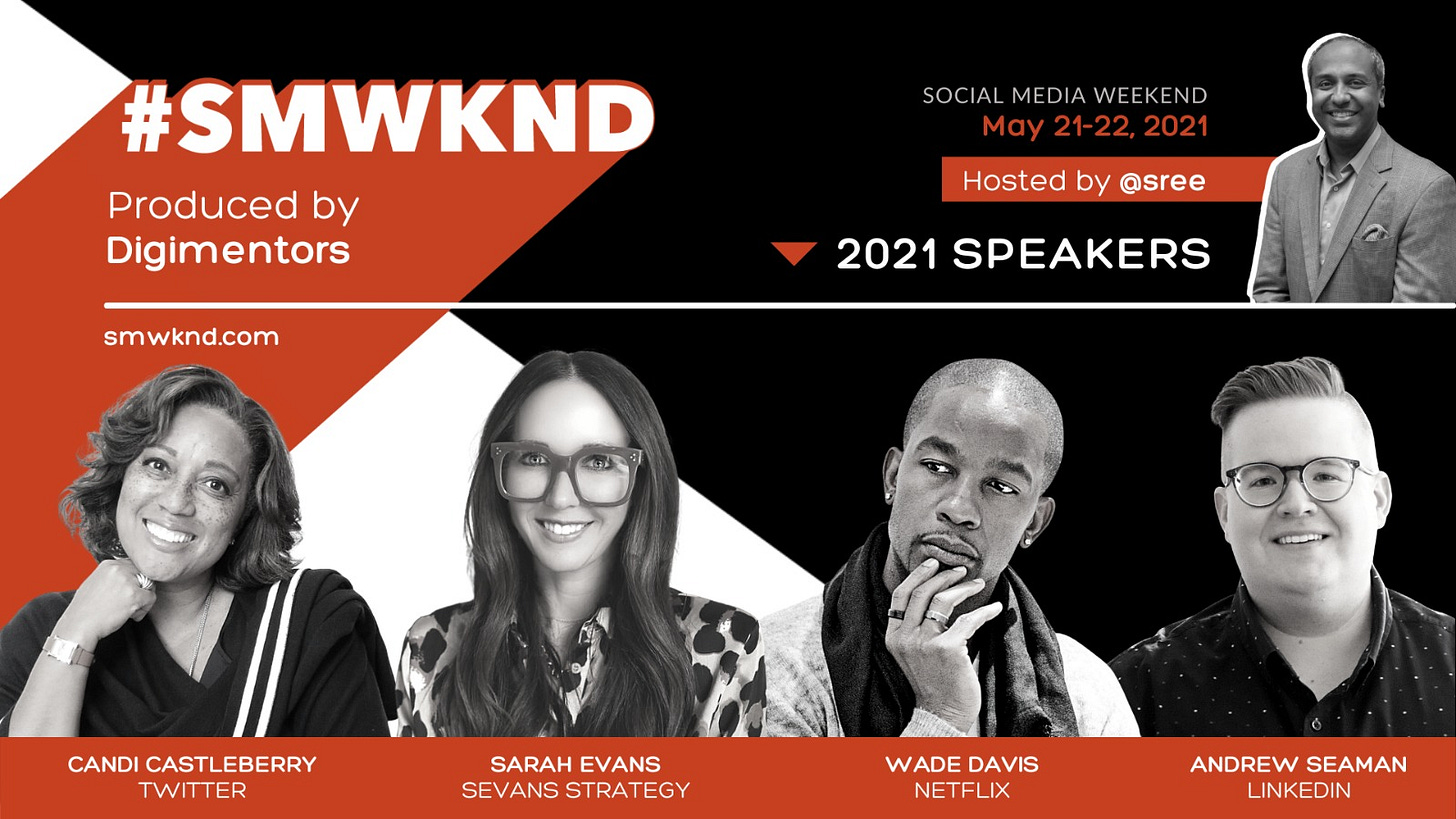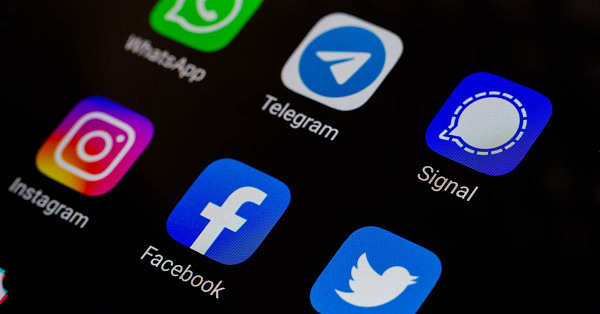This is not about the Facebook Oversight Board decision
You probably already know what you think about that anyways.
Sree’s newsletter is produced w/ Zach Peterson (@zachprague). Cartoon by Tom Garrahan @righthandedleftyartist on IG.
Scroll down for Read Something; Watch Something; and a weekly tech tip from Robert S. Anthony (@newyorkbob).
Tickets are on sale for my fully-online conference, Social Media Weekend 2021 (#SMWKND). Join us in May 21-22! Makes a great gift for a recent grad - or anyone else.
My Digimentors team is working with companies and nonprofits around the world to create virtual and hybrid events. We’ve worked on events for 50 people and 100,000 people. See our new brochure. Don’t cancel or postpone your conference - contact us! sree@sree.net
***
Ok, my headline is true in the literal sense of the term, but I do want to talk about what exactly the Facebook Oversight Board actually is…and, more importantly, what it isn’t.
The language we’ve been using is very official—the oversight board was originally referred to as the “supreme court” of Facebook. It “passes down decisions.”
This piece by Kelsey Atherton (@AthertonKD) is the most convincing thing I’ve read about the oversight board to date.


This passage, the first paragraph of the piece, really hammers home the importance of language in this whole thing:
When Harvard Law professor Noah Feldman pitched Mark Zuckerberg on the idea of a Facebook Oversight Board, he explicitly framed it as a Supreme Court. From the outside, that framing seemed largely apt when the board handed down its ruling about the suspension of Donald Trump this week. The process had all the appearance of an institution governing itself. Facebook moderators, at the behest of the company, removed content deemed harmful in a timely manner. A review board with the mannerisms of a judiciary heard an appeal, issued a ruling on it and then stipulated how Facebook must change to comply with its own policies.
Self-governance, on its face, sounds almost farcical to me—especially in the context of a company as large and powerful as Facebook. But, as with actual governance, the process, scope, and actual power matter a lot. In this case, Facebook just didn’t answer the oversight board’s question about how the platform’s engineering played a very direct role in amplifying the content it ended up banning Donald Trump for. Without answers to this question and others like it, everything else is moot.
That’s the problem with self-governance, it’s not governance.
We can dress it up in official language that sounds quite literally like the language actual governments use, couch the debate in the context of free speech, and have esteemed practitioners from a variety of fields issue thoughtful judgments, but it’s important to read the details.
In its first major test run, Facebook showed that it can skirt around the most important questions its own “Supreme Court” asks. Combine this with the lack of any sort of meaningful pressure from the real government, and we seem to be exactly where we’ve been for the last decade-plus.
For a view from the inside, check out this interview Kara Swisher did with Alan Rusbridger (@arusbridger), a veteran journalist who sits on the board.


It’s an interesting and forthright discussion, but I left feeling like the board simply isn’t enough. The context in which we discuss the borders and boundaries of free speech has almost-completely shifted—now The Free Speech Discourse is centered almost exclusively around who gets banned from Twitter, Facebook, and YouTube. It’s decidedly not centered around what it should be: our own government stifling free speech, as we are seeing RIGHT NOW across the country.
This is what a crackdown on free speech looks like in Tennessee. In Florida. In Georgia.
- Sree
Get Your Tix for Social Media Weekend, May 21-22
Social Media Weekend 2021 #smwknd is coming up! Our fully-online event happens on May 21-22 (Friday evening in NYC and all-day Saturday)—you can watch live or later as we share tips and advice on all things social and digital. We have all-star speakers who will help us navigate the digital world this year and beyond. See details.
Join us for:
25+ speakers
2 keynotes
2 roundtable discussions
12+ short talks, panels, workshops,
20+ hours of learning
WATCH LIVE OR LATER
For sponsor info and more, contact Executive Producer Linda Bernstein, VP of Education, Digimentors (linda@digimentors.group).
Read Something
As a journalism professor, this is an especially devastating read. Reporting on the pandemic is unimaginably difficult, and the people who have been doing it since the beginning are finding themselves simply unable to continue. Olivia Messer (@oliviamesser) would know—she covered Covid19 for The Daily Beast.


Post-Pandemic Tech Bargains
By Robert S. Anthony
Each week, veteran tech journalist Robert S. Anthony shares a tech tip you don’t want to miss. Follow him @newyorkbob.
Remember the days when your computer’s webcam and microphone were features you knew about but never used? As remote work and learning took hold during the pandemic, we sure as heck learned how to use them.
In addition, any gadget that could make us look or sound better in videoconferences flew off electronics store shelves like proverbial hotcakes, leaving some as bare and shiny as supermarket toilet paper racks.
Today, as more of us get vaccinated against Covid-19 and as workplaces and schools come back to in-person life, the same webcams, microphones, LED lights, green screens and other videoconferencing accessories that were often impossible to find at any price in 2020 can now be had at normal or (*gasp*) bargain prices.
For example, as the pandemic took hold last year, demand for Logitech’s line of webcams skyrocketed thanks to the solid reputation of its venerable C920 series, which dates back to 2012. Today, however, Logitech webcams are relatively easy to find—a relief for workers and students who may still be subject to remote or hybrid situations this fall.
A look on eBay found numerous listings for new Logitech C920s Pro HD webcams, which include the suddenly important flip-down privacy cap, and plenty of used Logitech C920 HD Pro webcams, an older unit so popular it’s out of stock on Logitech’s website.
Quality microphones were also in high demand last year as laptop users found that the omnidirectional microphones in their units caught everything, including background chatter, battling children and other unwanted noises. Many professional-grade microphones like the Yeti and Snowball from Blue Microphones, both of which connect easily to computers via the USB port, were very hard to find last year, but as the need for them relaxes, many used Blue Microphones units are now available on eBay.
No, the supply of tech gear is not back to what it used to be, as can be seen in the current shortage of various type of computer chips, but the end of shortages, hoarding and price gouging of some essential tech products is good news—and we can use more of that right now.
Read Something Else
With all of the Facebook Oversight Board chatter, it’s always worth freshening up on how Facebook makes decisions around advertising across its platforms. Also, kudos to the folks at Signal for coming up with this.
Watch Something
India is setting global records for the number of new COVID-19 cases, and millions are in need of urgent help. The situation is dire and requires immediate action. This is what our latest Indiaspora Community Conversations show covered this week Watch “COVID-19 Relief in India: From Giving to On-the-Ground Impact” below to hear from different donors on why they gave toward relief efforts, and from nonprofit experts and NGO leaders on how donors’ contributions are translating to direct on-the-ground impact.
Guests: Ajay Nair (CEO of Swasth); Anna Asava (co-founder of Hunger Mitao Foods Banks); Narendra Mulani (investor and entrepreneur); Raju Reddy (Sewa Bay Area advisor); Roma Bose (Senior Advisor, Partnerships at the WISH Foundation); Naghma Mulla (CEO of the EdelGive Foundation); and Nishant Pandey (CEO of the American India Foundation).
Odds & Ends
🗞 Tickets are on sale for Social Media Weekend 2021 (#SMWKND) - sign up and take advantage of our early bird rate! Join us May 21-22!
Every Sunday at 11 am-noon ET, watch the new medical show I’m co-executive producing with surgeons Sujana Chandrasekhar, M.D. (@DrSujanaENT), and Marina Kurian, M.D. (@MarinaKurian), called She’s On Call (watch live or later).
After 250 episodes in 250 days, my global show has moved from daily episodes to 1-2 times a week. The best way to know when I’m on the air and see all my archived shows, is to subscribe to my YouTube channel or my Whatsapp alerts.
The Sunday #NYTReadalong is sponsored by Muck Rack. Interested in sponsorship opportunities? Email sree@digimentors.group and neil@digimentors.group.
🎧 Every Saturday, I host a call-in show on WBAI 99.5FM (@wbai) - "Coping with Covid19" - focused on being helpful, hopeful, and focusing on the pandemic's effects on society’s most vulnerable. Listen live Saturdays from 12-1pm ET, or later. And, of course, call in or tweet questions for us using the #wbaisree hashtag. Listen to a recent episode here!
👀 Did we miss anything? Make a mistake? Do you have an idea for anything we’re up to? Let us know! Let’s collaborate!









